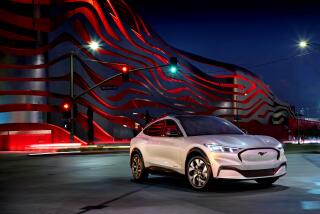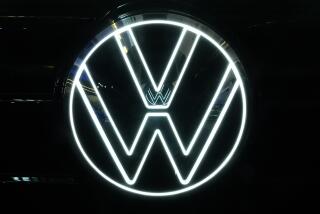Defiant Chrysler says recalled vehicles aren’t defective
Less than a day after announcing a massive recall of 1.56 million Jeeps, Chrysler again struck a defiant tone, saying that the trailer hitches it agreed to install won’t protect motorists in high speed crashes and that the recalled vehicles are not, in fact, defective.
In two letters submitted late Tuesday to the National Highway Traffic Safety Administration, the nation’s third-largest automaker said it would continue to deny NHTSA’s request to recall vehicles prone to fires after high-speed rear-end collisions.
It also noted that the trailer hitches -- which it will install in the 1993 to 1998 Grand Cherokee and 2002 to 2007 Liberty as part of the recall -- “cannot, and will not, mitigate the risk of the high energy rear collisions identified in your recall request letter.”
READ: Chrysler’s letter to NHTSA on recall | Chrysler’s letter on defect issue
Instead, wrote Matthew Liddane, a Chrysler vice president who manages regulatory affairs, the hitches will “incrementally improve the performance of certain of the subject vehicles in certain types of low-speed impacts.”
The letters continue on at length and in great detail explaining why Chrysler believes its vehicles do not have defects and why the Auburn Hills, Mich., company will not address issues related to high-force impacts in the recall. Although NHTSA had requested recalls of all Grand Cherokees through the 2004 model year, Chrysler said Tuesday it would limit the scope of the recall to 1993 to 1998 models, a potentially huge cost saver for the company.
In its June 3 letter requesting the recall, NHTSA had given Chrysler until Tuesday to formally respond. The agency has been investigating several Jeep models for more than two years, following complaints that the vehicles were unusually prone to develop fuel leaks and catch fire after rear-end crashes.
In its probe, NHTSA identified approximately 50 fire deaths resulting from crashes in the Grand Cherokee and Liberty. Consumer groups, meanwhile, have said they’ve found more than 300 fatalities.
Clarence Ditlow, executive director of Center for Auto Safety, called on NHTSA to formally declare a defect in the 1999 to 2004 Grand Cherokees “in order to force their recall as well.”
Ditlow has indicated that the fire problem may extend to other Jeep models that, like the Grand Cherokee and Liberty, have fuel tanks mounted behind the rear axle. He called on NHTSA to extend the recall to 1993 to 2001 Cherokee vehicles.
Chrysler argues its vehicles are no more dangerous than other comparable vehicles. But NHTSA statistics indicate passengers of the trucks are significantly more likely to die as a result of a fire after a rear-end collision than those in models such as the Toyota 4Runner.
The automaker has been sued numerous times over such fires and faces the prospect of more litigation, which may explain why it is pushing back on NHTSA’s indication that there is a defect in the cars.
“The defect in these vehicles is simple and obvious: Chrysler placed the fuel tank next to the rear bumper,” said Leigh Martin May, a Georgia law firm representing the family of a four year old boy, Remington Walden, who burned to death in a 1999 Grand Cherokee following a rear-end crash in March 2012.
NHTSA’s investigation of the Jeep fuel tanks remains open. In a statement Tuesday, the nation’s top auto safety regular said it was “pleased that Chrysler has agreed to take action to protect its customers and the driving public.”
ALSO:
Photos: Ten worst cars in America
Chrysler reverses course, agrees to repair Jeeps
Chrysler defies federal regulators on Jeep recall






